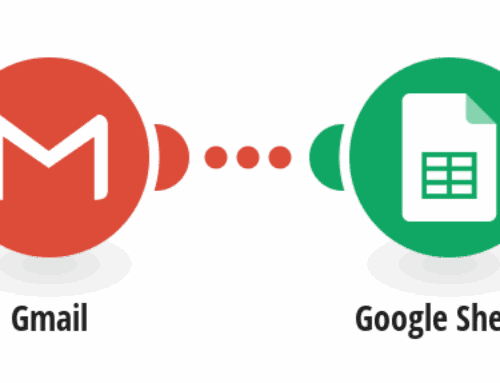Boost Your Google Ranking: A Comprehensive Guide
Understanding Google Rankings
At its core, Google’s algorithm is like a massive, mysterious puzzle that everyone is trying to solve. Google uses this complex set of rules to determine the ranking of web pages in search results. Why does this matter? Well, the higher your website ranks, the more visible it becomes, increasing traffic and potential business.
Google’s algorithm takes into account over 200 factors, including the relevance and quality of content, page speed, mobile-friendliness, and backlinks. Understanding these factors can feel like deciphering a secret code, but mastering them means that you’re well on your way to climbing those rankings.
The Power of Keywords
Keywords are the bread and butter of SEO. Think of them as the magical phrases that connect your content with what people are searching for on the internet. Choosing the right keywords is like finding the perfect ingredients for a recipe; they need to be relevant, popular, and fit well within your content.
Effective keyword research involves finding terms that are not just popular but also have less competition. It’s a mix of art and science, where you use tools like Google Keyword Planner or SEMrush to identify opportunities. The goal is to find the sweet spot where your chosen keywords help boost your visibility yet are not so competitive that you’re lost among the giants.
Using Browse AI for Keyword Insights
Browse AI steps in as a crucial tool in unlocking the potential of keywords. It’s like having a detective at your disposal who goes out there to discover which keywords are performing best for particular niches. Using Browse AI, you can track keyword performance and gather invaluable insights about what’s trending.
This tool collects data from competitors, provides SERP (Search Engine Results Page) analysis, and suggests improvements for your strategy. Imagine being able to peek into your competitors’ playbooks; Browse AI offers that kind of power, allowing you to strategize more effectively.
Crafting Content Around Keywords
Once you’ve nailed your keyword selection, it’s time to weave them into your content thoughtfully. This isn’t about stuffing keywords everywhere; that’s a recipe for disaster. Instead, incorporate them naturally, ensuring they enhance rather than hinder readability. It’s like adding seasoning to a dish—too much, and it overpowers everything.
Focus on creating high-quality, engaging content that answers the questions your audience is searching for. The better your content, the more likely it is to earn backlinks, shares, and ultimately, a higher rank. Remember, you’re writing for humans first and search engines second.
Improving Content with ChatGPT
ChatGPT, an AI powerhouse, serves as your digital writing assistant. It’s like having a brainstorming partner who never runs out of ideas. You can use ChatGPT to generate engaging content, refine your drafts, and even create compelling calls to action.
Imagine talking to a friend who’s a pro at crafting words. That’s ChatGPT, helping you tweak your phrasing and diversify your vocabulary. It’s an invaluable ally when you hit writer’s block or need a fresh perspective on your content.
Creating Engaging Meta Descriptions
Your meta description acts like a window display for your content. When someone sees your page in their search results, an intriguing meta description could be the nudge they need to click through. Think of it as that catchy book blurb that makes you pick a novel off the shelf.
Using ChatGPT, you can whip up multiple versions of a meta description until you find one that captivates. It’s all about conveying what readers can expect in those pivotal 150 characters, blending creativity with precision.
Tracking Progress with Analytics
After implementing your strategies, tracking their success is vital. This is where analytics come into play. It’s like checking the scoreboard during a game; you need to know whether your tactics are working. Using tools like Google Analytics, you can monitor traffic, user behavior, and conversion rates.
These insights tell you what’s working and what needs tweaking. With analytics, you’re not just shooting in the dark; you’re making data-driven decisions that can lead you to the top of the rankings.
Conclusion
Cracking the Google ranking code is no small feat, but it’s attainable with the right tools and strategies. By understanding how to leverage keywords, utilizing Browse AI for insights, crafting high-quality content, and harnessing the power of ChatGPT, you’re well-equipped to enhance your online presence. Remember, improving your Google ranking is an ongoing journey, not a quick sprint. Keep refining your approach, stay updated with trends, and continue optimizing your content for a greater chance of success.
FAQs
How long does it take to improve Google’s ranking?
SEO efforts can take several months to show significant results. Patience and consistent optimization are crucial.
What is the most important factor in Google ranking?
There isn’t a single most important factor; it’s a combination of high-quality content, backlinks, and technical optimization.
How often should I update my keywords?
Regularly revisiting and updating your keywords every few months ensures they remain relevant and effective.
Can I solely rely on ChatGPT for content creation?
While ChatGPT is an excellent tool, combining it with personal insights and expertise leads to richer content.
Is mobile optimization necessary for Google ranking?
Absolutely. Mobile optimization significantly impacts your site’s visibility and overall user experience.











